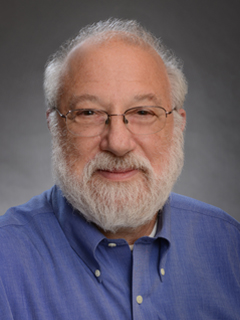HOW CAN WE HELP YOU? Call 1-800-TRY-CHOP
In This Section

Dr. Argon investigates the unfolded protein response (UPR) , an essential signaling network that determines life or death of stressed cells and tissues. The IRE1 sensor of UPR responds to metabolic stress through four distinct activities and he focuses on determining which stress condition induces each activity and how they are integrated to enable the cells to cope with stress.
Bio
Dr. Argon's recent research focus on the induction of the unfolded protein response (UPR) during cell differentiation charts a full scientific circle, as he started his independent research program defining the UPR phenomenon. His research now focuses on the role of UPR in combating diseases like diabetes and growth retardation.
Much of Dr. Argon's research program concerns the control of protein folding in the endoplasmic reticulum by molecular chaperone and the challenge of quality control of the secretory proteome.
Education and Training
BS, Hebrew University Medical School (Biology), 1974
PhD, Harvard University Medical School (Biochemistry), 1980
Fellowship, Medical Research Council Lab of Molecular Biology, Cambridge (Molecular Biology), 1984
Titles and Academic Titles
Professor of Pathology and Laboratory Medicine
Professional Awards
Young Investigator Award, Arthritis Foundation, 1986-1989
Junior Faculty Research Award, American Cancer Society, 1988–1991